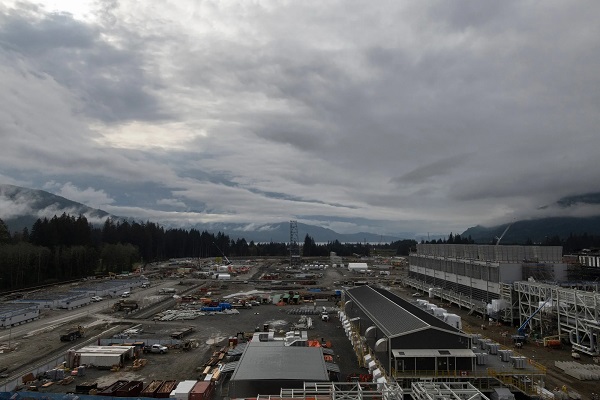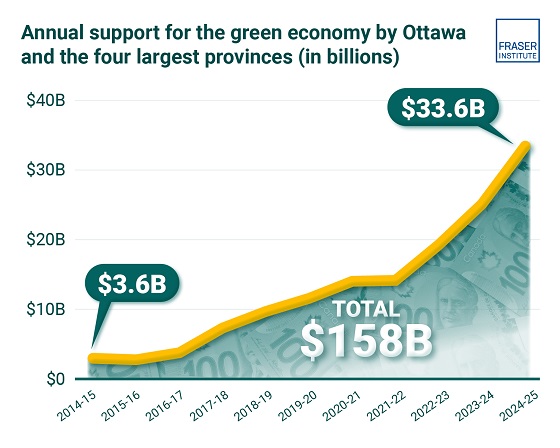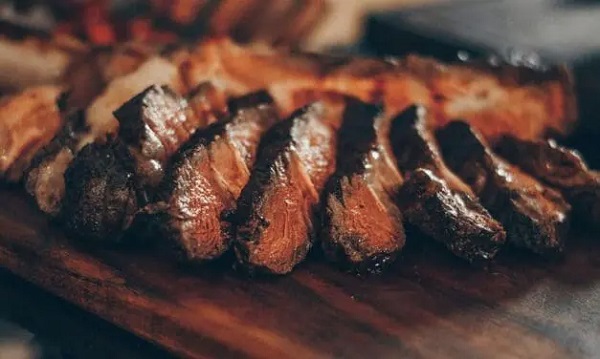Business
BC voters ditching climate crisis for promise to unlock natural resource development

From Energy Now
The LNG Canada facility under construction in Kitimat, British Columbia
Climate Goals Face B.C. Election Backlash in Home of Greenpeace – B.C. Conservatives Have Upended Race With Focus on Unlocking Natural Resource Development
An unlikely political upstart in Canada’s third-largest province, expelled from his previous party for climate science skepticism, is within striking distance of winning power with promises to ditch environmental targets and unleash natural-resources development.
The surge in support for John Rustad’s Conservative Party of British Columbia ahead of the Oct. 19 election may have been helped by the popularity of the unaffiliated federal Conservatives. Victory would add to the roster of right-leaning premiers at odds with Prime Minister Justin Trudeau’s Liberal government in Ottawa.
A Conservative government in BC might mark a bigger shift than anywhere else in the country. The province is famous for environmentalism — Vancouver is the birthplace of Greenpeace and home to Canada’s most famous climate activist, David Suzuki. David Eby, the current premier, unsuccessfully opposed the expansion of the Trans Mountain oil pipeline, and back in 2008 the province brought in one of North America’s first carbon taxes.
Although polls favor Eby’s left-leaning New Democratic Party, it’s close, and a spread between pollsters suggests the result remains unpredictable.
The public has endured inflation and strained local services, slower growth in an economy dragged by higher interest rates and lower exports, and a government that’s gone from surplus to a record C$9 billion ($6.5 billion) deficit. British Columbia, once rated AAA by S&P Global Ratings, has suffered three credit rating downgrades in three years.
Conservatives Have Surged in BC Polls
British Columbia’s Conservatives vault official opposition in election surprise
The ruling NDP — whose origins lie in labor unions — is parrying criticism of its own mixed seven-year record in office. It’s running on blunting the cost of living with subsidies, tying the minimum wage to inflation, taxing home speculation, blocking Airbnb Inc.-style short-term rentals and using hydrocarbon revenues for a “clean economy transition fund.”
Rustad’s rise is also a stunning tale of revenge. The longtime representative of Nechako Lakes — a district 600 miles north of Vancouver in BC’s deep interior — was kicked out of the BC Liberal Party in 2022 on his birthday after sharing a social media post questioning carbon dioxide’s effect on the climate. He took over the BC Conservative Party, then a marginal force in provincial politics. Before long it had leapfrogged his old party in the polls.
Acrimonious talks to merge the two groups failed, and by August the previously formidable Liberals — which had rebranded as BC United — gave up, withdrawing from the election in an effort to unite voters against the NDP.
Unlocking Natural Resources
In an interview with Bloomberg, Rustad said he won’t cut social, health or education spending — a majority of the budget. He’s also promising tax cuts and plans to deepen the deficit to more than C$10 billion in his first year.
His plan to balance BC’s budget over eight years is based on an optimistic 5.4% average GDP growth rate to 2030 — more than double the average rate of the past five years — fueled by axing CleanBC, the NDP plan to cut BC’s emissions 40% by 2030. Rustad said that would save as much as C$2.5 billion in government spending, then bring in billions in extra revenue by unlocking industrial projects.
Foremost among them is LNG Canada, a new liquefied natural gas project in the remote north that the federal government said may be worth C$40 billion — possibly the largest private investment in the country’s history. There’s a plan to double its size, but it’s proving tricky to power with BC’s zero-emission hydroelectricity instead of fossil fuels, because it would need a new transmission line, with one previous cost estimate at C$3 billion.
Not a problem if looser rules let them burn gas.
“In British Columbia, we could stop everything we do, and by next year the increases from China and India will swamp anything that we’ve done,” Rustad told Bloomberg. “So my perspective is we need to make sure we’re looking after people. And so for a changing climate, we need to be able to adapt to it.”
When he appeared on climate-skeptic Canadian influencer Jordan Peterson’s podcast, Rustad said: “How is it that we’ve convinced carbon-based beings that carbon is a problem?”
Rustad also talked up billions in extra revenue from streamlining mine permits — one of BC’s oldest industries and more prominent in the remoter parts of the province he hails from.
Asked about BC’s rural vote, Rustad says: “There’s no question, the NDP completely ignored it.”
Rustad also wants to ditch BC’s carbon tax to cut costs for businesses and consumers. That’s also the top rallying cry for federal Conservatives, who are trying to force a “carbon tax election” to topple Trudeau. Provincial carbon taxes are federally back-stopped, so to banish the tax Rustad would need the Conservative Party of Canada to take power.
“The top-of-mind issues that people are frustrated about are inflation and the cost of living, housing and health care,” Kathryn Harrison, a political science professor at the University of British Columbia, said in an interview. “And what we’ve seen is that the federal Conservative Leader Pierre Poilievre has been able to connect those public concerns with the carbon tax. It’s given them something that they can focus their frustrations on.”
Even the climate-conscious NDP has pivoted away from defending the carbon tax to pledging they would repeal it for consumers — but unlike the Conservatives, they would shift the burden to corporate “polluters.”
In his plan to speed up business, Rustad has also taken issue with BC’s Declaration on the Rights of Indigenous Peoples Act because it causes “friction”. It requires government to seek Indigenous people’s “free, prior and informed consent” to implement measures that may affect BC’s more than 200 Indigenous communities.
Rustad’s Conservatives include Indigenous candidates, and he talks about supporting economic reconciliation — the material, financial side of redressing Canada’s colonial injustices. But some First Nations leaders have called his platform “dangerous” for pitting British Columbians against each other.
Relentless Controversies
Rustad’s biggest weak point may be the controversial things said my members of his team, leading to relentless stories since they’ve been thrust into the spotlight.
Despite his dry, phlegmatic style, the same goes for Rustad himself. He’s said he regretted getting the “so-called” Covid-19 vaccine, and a clip showed him seeming to go along with an activist’s concept of “Nuremberg 2.0” — trials for officials who oversaw pandemic health measures. Rustad apologized and said he “misunderstood” the question.
Rival party staffers gave out BC Conservative-branded tinfoil hats after a candidate’s shared posts described 5G wireless signals as a weapon, according to local media. She was ousted, but another candidate who claimed vaccines can cause a type of AIDS remains part of the caucus.
Another apologized last week for posts including one in 2015 calling Palestinians “inbred walking, talking, breathing time bombs.”
In communities like Metro Vancouver, some of the most diverse in North America, that kind of thing may jeopardize Rustad’s path to power.
But Rustad is also being cheered on by what Harrison described as an “accidental collection of voters who share frustration with the cost of living, the cost of housing, emergency room closures” — which could span from suburban families who judge the economy isn’t working for them to BC’s wealthiest, including billionaire Lululemon Athletica Inc founder Chip Wilson.
If Rustad pulls it off, his unorthodox strategy to turn one of Canada’s progressive strongholds conservative will reverberate with those fighting federal politics in the nation’s capital 3,000 miles away.
Business
Clean energy transition price tag over $150 billion and climbing, with very little to show for it

From the Fraser Institute
By Jake Fuss, Julio Mejía, Elmira Aliakbari, Karen Graham and Jock Finlayson
Ottawa and the four biggest provinces have spent (or foregone revenues) of at least $158 billion to create at most 68,000 “clean” jobs since 2014
Despite the hype of a “clean” economic transition, governments in Ottawa and in the four largest provinces have spent or foregone revenues of more than $150 billion (inflation-adjusted) on low-carbon initiatives since 2014/15, but have only created, at best, 68,000 clean jobs, according to two new studies published by the Fraser Institute, an independent, non-partisan Canadian public policy think-tank.
“Governments, activists and special interest groups have been making a lot of claims about the opportunities of a clean economic transition, but after a decade of policy interventions and more than $150 billion in taxpayers’ money, the results are
extremely underwhelming,” said Elmira Aliakbari, director of natural resource studies and co-author of The Fiscal Cost of Canada’s Low-Carbon Economy.
The study finds that since 2014/15, the federal government and provincial governments in the country’s four largest provinces (Ontario, Quebec, Alberta and British Columbia) combined have spent and foregone revenues of $158 billion (inflation adjusted to 2024 dollars) trying to create clean jobs, as defined by Statistics Canada’s Environmental and Clean Technology Products Economic Account.
Importantly, that cost estimate is conservative since it does not account for an exhaustive list of direct government spending and it does not measure the costs from Canada’s other six provinces, municipalities, regulatory costs and other economic
costs because of the low-carbon spending and tax credits.
A second study, Sizing Canada’s Clean Economy, finds that there was very little change over the 2014 to 2023 period in terms of the share of the total economy represented by the clean economy. For instance, in 2014, the clean economy represented 3.1 per cent of GDP compared to 3.6 per cent in 2023.
“The evidence is clear—the much-hyped clean economic transition has failed to fundamentally transform Canada’s $3.3 trillion economy,” said study co-author and Fraser Institute senior fellow Jock Finlayson.
State of the Green Economy
- The Fiscal Cost of Canada’s Low-Carbon Economy documents spending initiatives by the federal government and the governments of Ontario, British Columbia, Alberta, and Quebec since 2014 to promote the low-carbon economy, as well as how much revenue they have foregone through offering tax credits.
- Overall, the combined cost of spending and tax credits supporting a low-carbon economy by the federal government and the four provincial governments is estimated at $143.6 billion from 2014–15 to 2024–25, in nominal terms. When adjusted for inflation, the total reaches $158 billion in 2024 dollars.
- These estimates are based on very conservative assumptions, and they do not cover every program area or government-controlled expenditure related to the low-carbon economy and/or reducing greenhouse gas emissions.
- Sizing Canada’s Green Economy assesses the composition, growth, share of Gross Domestic Product (GDP) output, and employment of Canada’s “clean economy” from 2014 to 2023.
- Canada’s various environmental and clean technology industries collectively have accounted for between 3.07% and 3.62% of all-industry GDP over the 10-year period from 2014 to 2023. While it has grown, the sector as a whole has not been expanding at a pace that meaningfully exceeds the growth of the overall Canadian economy, despite significant policy attention and mounting public subsidies.
- The clean economy represents a respectable and relatively stable share of Canada’s $3.3 trillion economy. However, it remains a small part of Canada’s broader industrial mix, it is not a major source of export earnings, and it is not about to supplant the many other industries that underpin the country’s prosperity and dominate its international exports.
Agriculture
Cloned foods are coming to a grocer near you

This article supplied by Troy Media.
And you may never find out if Health Canada gets its way
Cloned-animal foods could soon enter Canada’s food supply with no labels identifying them as cloned and no warning to consumers—a move that risks public trust.
According to Health Canada’s own consultation documents, Ottawa intends to remove foods derived from cloned animals from its “novel foods” list, the process that requires a pre-market safety review and public disclosure. Health Canada defines “novel
foods” as products that haven’t been commonly consumed before or that use new production processes requiring extra safety checks.
From a regulatory standpoint, this looks like an efficiency measure. From a consumer-trust standpoint, it’s a miscalculation.
Health Canada argues that cloned animals and their offspring are indistinguishable from conventional ones, so they should be treated the same. The problem isn’t the science—it’s the silence. Canadians are not being told that the rules for a controversial technology are about to change. No press release, no public statement, just a quiet update on a government website most citizens will never read.
Cloning in agriculture means producing an exact genetic copy of an animal, usually for breeding purposes. The clones themselves rarely end up on dinner plates, but their offspring do, showing up in everyday products such as beef, milk or pork. The benefits are indirect: steadier production, fewer losses from disease or more uniform quality.
But consumers see no gain at checkout. Cloning is expensive and brings no visible improvement in taste, nutrition or price.
Shoppers could one day buy steak from the offspring of a cloned cow without any way of knowing, and still pay the same, if not more, for it.
Without labels identifying cloned origin, potential efficiencies stay hidden upstream. When products born from new technologies are mixed with conventional ones, consumers lose their ability to differentiate, reward innovation or make an informed choice. In the end, the industry keeps the savings while shoppers see none.
And it isn’t only shoppers left in the dark. Exporters could soon pay the price too. Canada exports billions in beef and pork annually, including to the EU. If cloned origin products enter the supply chain without labelling, Canadian exporters could face additional scrutiny or restrictions in markets where cloning is not accepted. A regulatory shortcut at home could quickly become a market barrier abroad.
This debate comes at a time when public trust in Canada’s food system is already fragile. A 2023 survey by the Canadian Centre for Food Integrity found that only 36 per cent of Canadians believe the food industry is “heading in the right direction,” and fewer than half trust government regulators to be transparent.
Inserting cloned foods quietly into the supply without disclosure would only deepen that skepticism.
This is exactly how Canada became trapped in the endless genetically modified organism (GMO) debate. Two decades ago, regulators and companies quietly introduced a complex technology without giving consumers the chance to understand it. By denying transparency, they also denied trust. The result was years of confusion, suspicion and polarization that persist today.
Transparency shouldn’t be optional in a democracy that prides itself on science based regulation. Even if the food is safe, and current evidence suggests it is, Canadians deserve to know how what they eat is produced.
The irony is that this change could have been handled responsibly. Small gestures like a brief notice, an explanatory Q&A or a commitment to review labelling once international consensus emerges would have shown respect for the public and preserved confidence in our food system.
Instead, Ottawa risks repeating an old mistake: mistaking regulatory efficiency for good governance. At a time when consumer trust in food pricing, corporate ethics and government oversight is already fragile, the last thing Canada needs is another quiet policy that feels like a secret.
Cloning may not change the look or taste of what’s on your plate, but how it gets there should still matter.
Dr. Sylvain Charlebois is a Canadian professor and researcher in food distribution and policy. He is senior director of the Agri-Food Analytics Lab at Dalhousie University and co-host of The Food Professor Podcast. He is frequently cited in the media for his insights on food prices, agricultural trends, and the global food supply chain.
Troy Media empowers Canadian community news outlets by providing independent, insightful analysis and commentary. Our mission is to support local media in helping Canadians stay informed and engaged by delivering reliable content that strengthens community connections and deepens understanding across the country.
-

 Alberta6 hours ago
Alberta6 hours agoFrom Underdog to Top Broodmare
-

 Media1 day ago
Media1 day agoCarney speech highlights how easily newsrooms are played by politicians
-

 Business1 day ago
Business1 day agoThe painful return of food inflation exposes Canada’s trade failures
-

 Business8 hours ago
Business8 hours agoPaying for Trudeau’s EV Gamble: Ottawa Bought Jobs That Disappeared
-

 Business11 hours ago
Business11 hours agoCBC uses tax dollars to hire more bureaucrats, fewer journalists
-

 National9 hours ago
National9 hours agoElection Officials Warn MPs: Canada’s Ballot System Is Being Exploited
-

 Economy3 hours ago
Economy3 hours agoIn his own words: Stunning Climate Change pivot from Bill Gates. Poverty and disease should be top concern.
-

 Addictions5 hours ago
Addictions5 hours agoThe Shaky Science Behind Harm Reduction and Pediatric Gender Medicine











